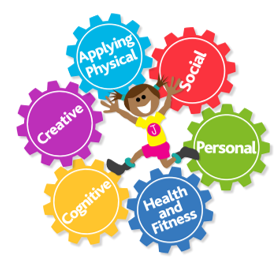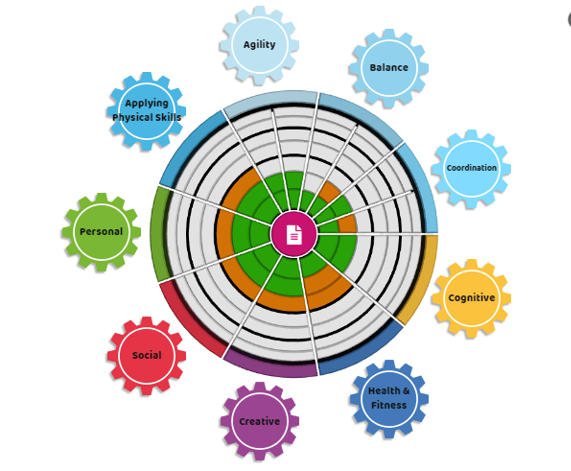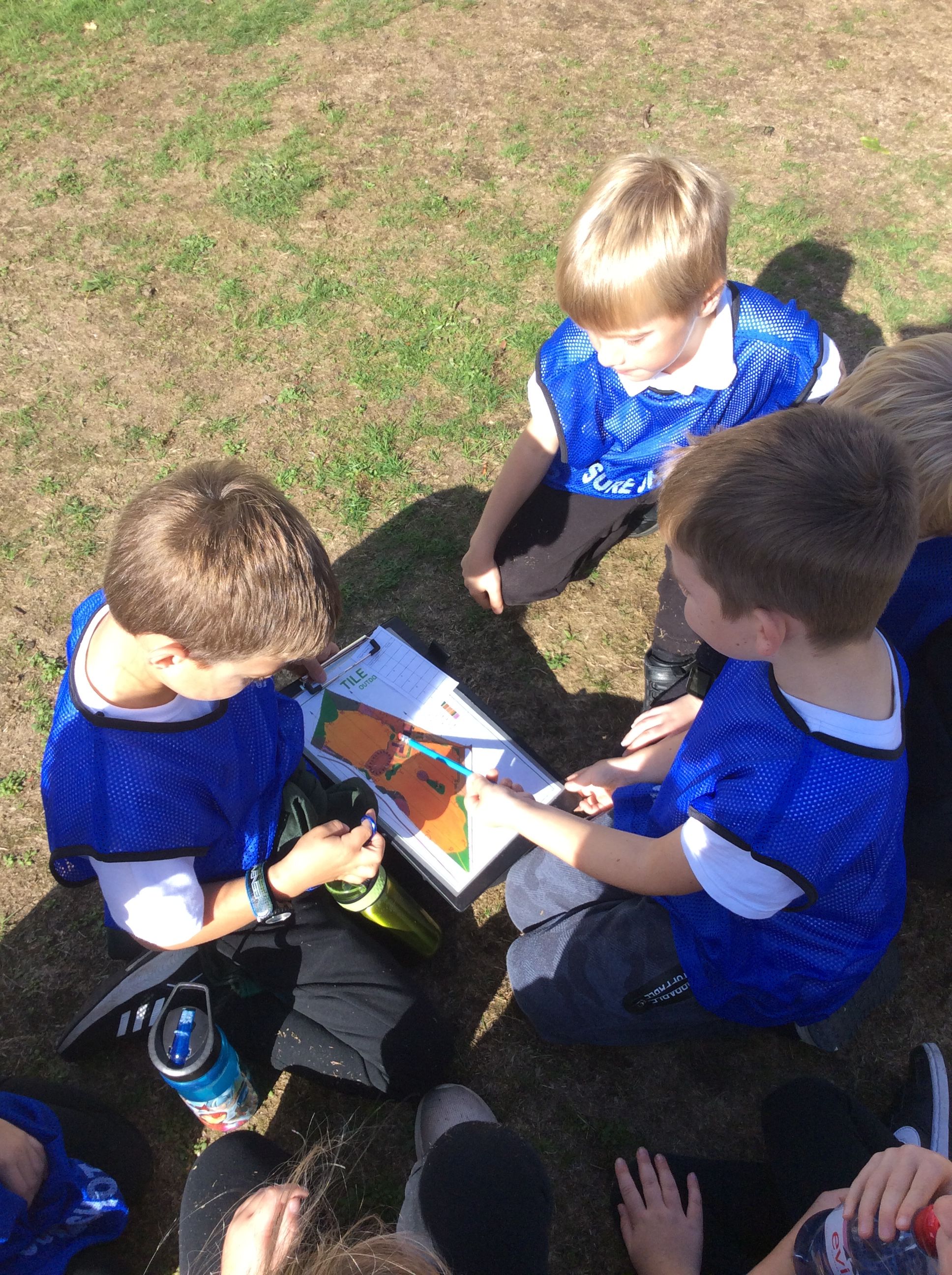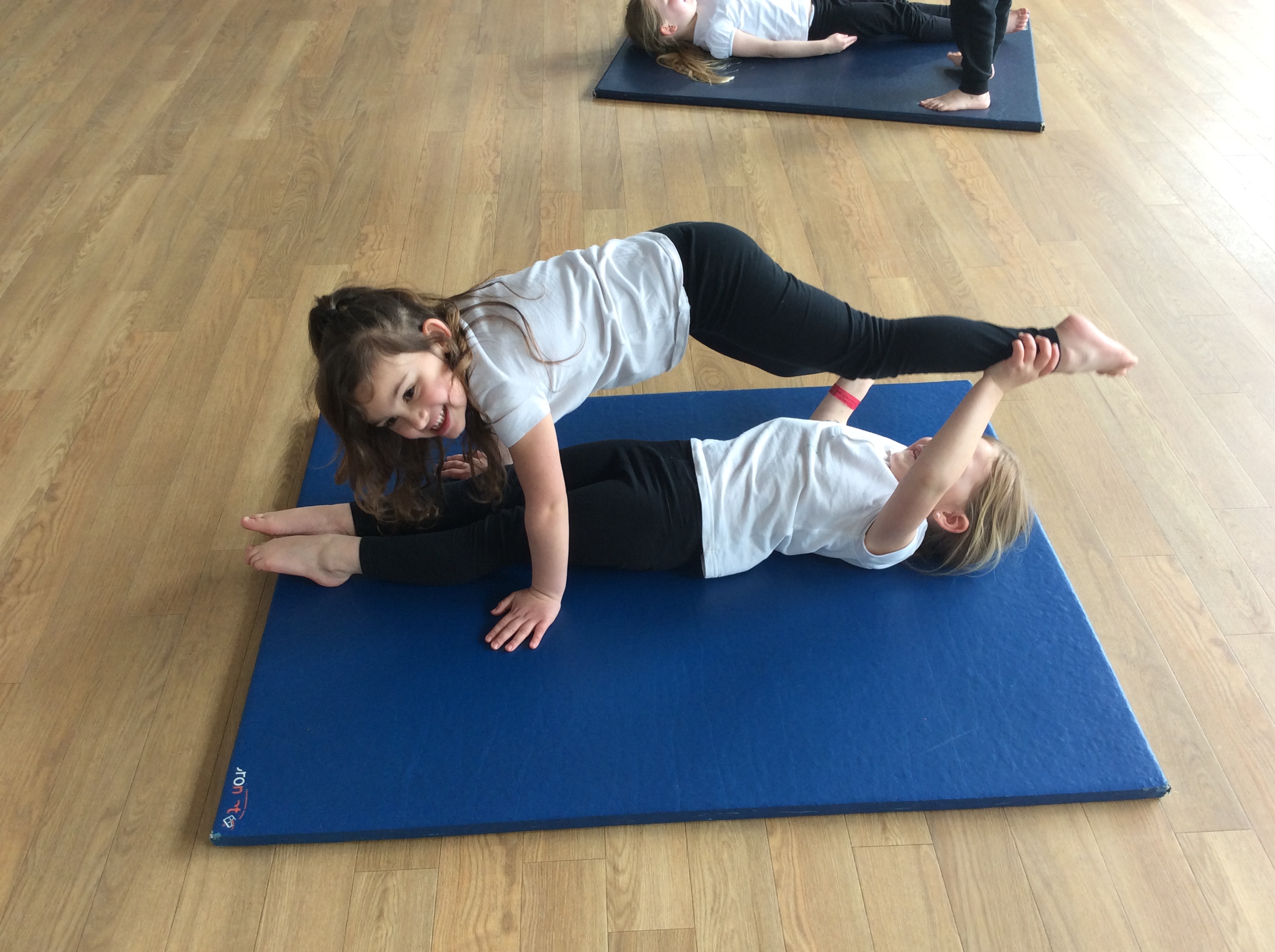PE
Why is PE so important at Calmore Infant School?
At Calmore Infant School, we believe that physical education is a vital part in every child’s infant school experience. We know active, healthy children achieve more. We believe that it is essential that Physical Education supports the philosophy of our School, developing the whole child and that every pupil feels included, challenged and supported. We want to give all of our children the opportunity to try a variety of different sports and activities to be physically active in their lifestyle. Our aim is to lead them to have a lifelong love of physical activity. We use the ‘Real PE Scheme of work’ to ensure we have a challenging, appropriate and consistent curriculum for all.
We believe we can create an enabling environment in PE where young people feel included, valued, challenged and supported to achieve their maximum potential. We create an environment where everyone feels a sense of belonging, and develop the key Fundamental Movement Skills (FMS) to access many sports and physical activities as they got older. We aim for children to understand why sport is good for their social, emotional and physical well-being. We are fortunate with our fantastic indoor and outdoor environment which allows a range of extra curricular activities and the children can access our ‘Outdoor Play and Learning Scheme’(OPAL).
Our intent is to provide children with a range of different sporting experiences as well as opportunities to compete. The children know they are part of a caring and supportive community as an individual or part of a team, they feel empowered to contribute, lead and to meet new challenges whilst valuing and celebrating the success of others.
What does PE at Calmore look like?
At Calmore Infant School, we follow the ‘Real Pe’ scheme made by create development.
Real PE, is first and foremost, a philosophy and approach which aims to transform how PE is taught, in order to include, challenge and support every child. It supports teachers and other deliverers to make small changes that will have a significant impact on their learners.
In Real PE there are 6 learning cogs which are the lessons' aims and objectives. These link with our learning heroes and help the children to think about how we learn.
The Fundamental movement skills (FMS) are the basic movements traditionally associated with human physical activity. Pupils should develop these skills and become increasingly competent and confident in accessing a broad range of opportunities.
Other opportunities
As well as following the Real PE scheme, create development offer a range of different skills. Examples of which are below.

What does a typical lesson look like?

This is the format for each lesson on the Real PE platform. Each half term focuses on a different learning cog, and the format for all lessons are exactly the same for each cog and each year group.
This ensures educators are confident in what they are teaching, and ensures for effective implementation and consistency.
Each lesson beings with a warm up, followed by the main skill of the session, before then applying the newly learnt skill to a scenario. The final stage of the lesson is the review, and allows the children to reflect and take ownership of their learning, this also aligns with our learning heroes.
What do we want in our PE?
"Leaders adopt or construct a curriculum that is ambitious and designed to give all pupils the knowledge and cultural capital they need to succeed in life".
The intent for the Real PE lessons are the different learning cogs, as well as focusing on the FMS

Progression within the learning cogs
Year R:
I can follow instructions and practise safely.
I enjoy working on simple tasks with help.
Year 1:
I can work on simple tasks by myself.
I can follow instructions and practise/ safely.
I try several times if at first I don’t succeed.
I ask for help when appropriate.
Year 2:
Level 1
I can work on simple tasks by myself.
I can follow instructions and practise safely.
Level 2
I try several times if at first I don’t succeed.
I ask for help when appropriate.
I have begun to challenge myself.
I know where I am with my learning.
Inclusion within PE
We are an inclusive school and adapt our planning to ensure that all of our children are included and make progress. Within the online 'Jasmine platform', there are supporting videos for staff to show differing examples of children trying the skills.
These videos demonstrate how inclusive the Jasmine and Real PE curriculum is. It offers support and challenge for children of all needs and abilities, ensuring that every child makes good progress and is inspired.
What does our PE assessment look like?

This is the assessment wheel available on the Jasmine portal.
Assessments happen each half termly, and are assessed against the learning cog that has been worked on
Individual comments can be added if specific children have not reached that specific learning nutrient when the others have.
This ensures that when the children move to Year 1 from Year R then the class teacher can see which learning cog is not as strong as the others and lessons can be targeted tp address this.
What impact does our PE curriculum have?
Our children love taking part in PE, we come to school ready for PE each day so we do not waste a minute of our lessons getting changed. This also means that we can be really active at school, especially during lunch and playtimes. We love playing active games at lunchtime, we even have a sports coach every lunchtime.
Pupils have a voice within lessons to critique and feedback on their own and other’s performance using kind, specific and helpful comments through two stars and a wish approach.
Pupil conferencing has enabled our PE lead to talk to children and to ascertain the pupil’s understanding of what they are learning within lessons, this voice of the child helps us to make sure that our children are involved first hand in the design of our curriculm.
How we establish a successful PE lesson
- Prioritise creating a positive learning environment first.
- Establish high levels of purposeful physical activity
- Share and review personalised outcomes
- Invest in developing emotional behaviours and thinking skills in every lesson.
- Apply the skills in as many contexts as possible.

